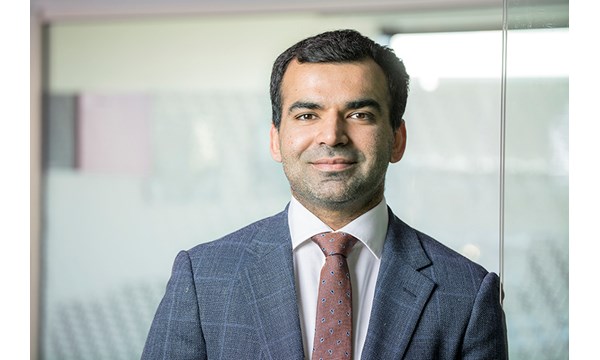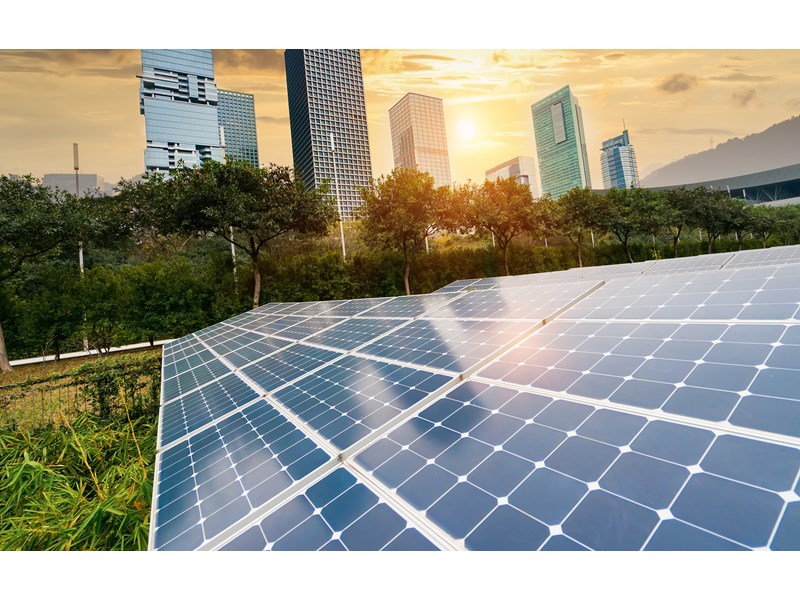Discuss your challenges with our solutions experts
Who will foot the bill for the energy transition in Asia-Pacific?
Views from the Wood Mackenzie Power and Renewables Conference: APAC
1 minute read
Prashant Khorana
Director, Power & Renewables Consulting

Prashant Khorana
Director, Power & Renewables Consulting
Prashant is Director, Data Product Owner – Asset Valuations within Wood Mackenzie's research and data organisation.
Latest articles by Prashant
-
Opinion
What we learned from conversations with power and renewables investors in 2024
-
Opinion
Underwriting Battery Energy Storage Systems (BESS) as an asset class
-
Opinion
10 transaction themes for private equity and principal investors in 2024
-
Opinion
What we learned from conversations with power and renewables investors in 2023
-
Opinion
How power and renewables investors should navigate the Inflation Reduction Act and recent power market volatility
-
Opinion
Who will foot the bill for the energy transition in Asia-Pacific?
There’s currently around US$1 trillion a year being spent along the global power and renewables value chain. And as the energy transition gathers pace, market activity continues to ramp up. At the wrap-up roundtable of the APAC edition of our Power and Renewables Conference series, I asked our panellists for their views on who might pick up the energy transition tab – and whether, in fact, there is an excess supply of capital.
Here’s an overview of what they had to say.
Question: Do you think the average customer in the markets where you operate understands the scale of the change involved in funding the energy transition?
Kiyoshi Doi, Executive Managing Officer, Head of Development, Japan Renewable Energy:
No, the average consumer does not. People in the industry, actually, a lot of them do not understand the total amount needed for this energy transition, just the parts in their relevant business domain. And maybe even the government itself has not really understood the significant investment that will be needed.
Richard Lowe, Chief Executive Officer, LUMEA:
The architecture and government around addressing this problem is very strong and has been bolstered significantly in recent years. At the consumer level, though, it's very difficult to look beyond what you see right in front of you, which is your own power requirements and maybe your energy efficiency – and, of course, the cost and reliability of that energy. We're confident that […] the problems will be addressed in coming years.
Toru Inoue, Vice President, Head of Infrastructure & Structured Finance, Goldman Sachs:
Awareness is nowhere near where you would want it to be. However […] I tend to be optimistic in the sense that here in Japan, we've seen some significant changes in consciousness and awareness in the right direction over the past three, four years.
Question: Do you think it's politically conducive in Australia or Japan to allow electricity prices to continue to increase? Is there a ceiling effect? Will people push back at a certain point?
Richard Lowe:
What we're finding in Australia is that renewable energy is the cheapest form of energy. Australia has a predominantly coal-fired generation system that's rapidly decreasing; renewables are now cheaper than coal and certainly a lot cheaper than gas as well. People are voting both with their minds in terms of ESG, but with their hip pockets as well.
Kiyoshi Doi:
In the long-term, bills will go down […] The perspective that renewables are needed, there's no alternative, is gradually seeping in. So, I think prices are already high, the damage has already been done to some extent and, hopefully, it won't be too much of a problem in the future.
Question: What role will carbon tax play? Do you think that might be easier than handing out incentives or cheaper financing for wind and solar operators?
Toru Inoue:
I'm not a specialist in that field, but I understand that the Japanese government, the Ministry of the Environment, has announced that they are looking into carbon tax deployment. And what I understand is that we already have an environment tax, which is US$3 per tonne; it doesn't move the needle.
Judging from my discussions with my investor clients and corporate clients, a government policy, if it's gradual, would be accepted. I don't think there's going to be too much of a backlash in that regard.
Richard Lowe:
There's certainly no government proposal for a carbon tax in the electricity sector [in Australia]. What there is, though, is an acknowledgement of decarbonisation and the need to move towards net zero.
A combination of government initiatives, government funding, precision development and privately funded infrastructure are means by which we seek to address what we all need to do.
Question: One interesting thing we're seeing among major corporations in the US and Europe is they are voluntarily procuring a greater share of clean power than required. What are your perspectives on decarbonised procurement?
Kiyoshi Doi:
[Companies are] doing their research. They're willing to sign corporate power purchase agreements as long as they're cheaper than their current electricity bill. So, it will happen probably in the next 10 years or so, but I would like to hope that there's some kind of push by the government or in their supply chain to incentivise, to gradually grow this, not wait until the last moment when everybody will be trying to secure the same kind of electricity.
Richard Lowe:
I think there are two things driving this: firstly, it's customers and consumers, and they want to buy power from companies […] that have a well-articulated ESG policy. And that includes sourcing renewable energy for their power needs. The second is the groundswell. For those of us with teenage children or for millennials, that generation is leading the charge in articulating what they want from the people they buy products and services from, and the social license that they need to have.
The presence of global investors, allied often with Australian investors and the large pension funds we have here, means that there's a huge amount of capital that wants to invest in the sector in Australia. What's constraining it, more than anything, is the status of the grid and the ability to get connected and be able to get that product to market.
Question: In Europe and the US, there's a remarkable appetite for clean energy projects, partially due to ESG requirements. Is there excess supply of capital?
Richard Lowe:
There is a deep pool of capital both in equity and in debt. In fact, in one estimate 70-80% of Australia's solar portfolio is in some form of transactional sale process at the moment. So, tremendous rotation from local and smaller developers and smaller aggregators into these very large Australian institutional pension funds and investors, and global strategics and global pension funds and investment houses coming into this market.
Toru Inoue:
I'll make it short. There's probably too much money chasing too few deals.








